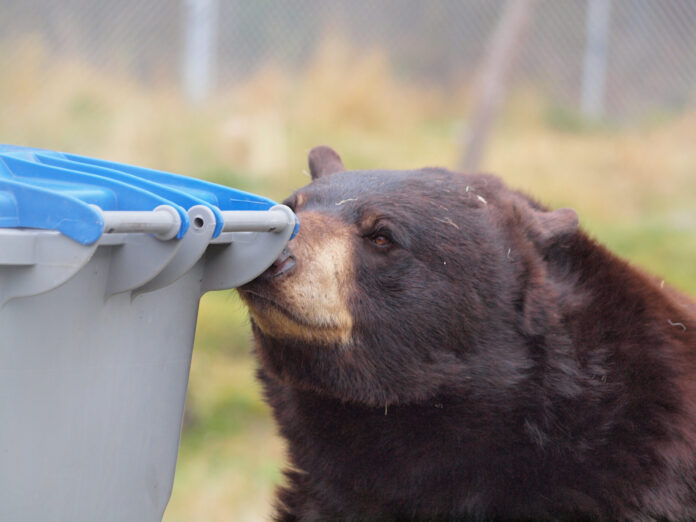The Elk Valley continues to be a provincial hotspot for bear conflict, but WildSafe BC says Fernie residents are taking steps to reduce the numbers.
According to the updated Bear Hazard Assessment, WildSafe received 200 black bear reports in Fernie in 2021, which was significantly higher than the five-year average of 55.
WildSafe BC Elk Valley Community Coordinator Dianna Haycock says there are a few reasons for the high numbers of bear encounters in Fernie and the Elk Valley.
“This area is an excellent bear habitat, so the animals are naturally drawn here. However, even when we compare to areas with similar habitats, the conflicts here are exceptionally high,” said Haycock.
“Fernie is located in a natural wildlife corridor, so we see bears pretty much everywhere. Properties that back onto green spaces like James White Park will see more bear activity, but it’s not uncommon to see bears walk right through the middle of town.”
Haycock says bear migration through the valley is not an issue on its own, but it can be problematic if the animals decide to stay in town.
“Where we run into trouble is when the bears are enticed to stick around because they find some garbage, fruit trees or even bird feeders,” explained Haycock.
“When they find those attractants, they will get food conditioned and habituated very quickly. Bears will return to a property where they found an easy meal for years.”
Haycock says garbage continues to be the number one animal attractant in Fernie.
“On top of bears getting into people’s containers at home, there have been issues – especially this year – with dumping and over-filling at community bins,” said Haycock.
“Bear-resistant bins only work when they’re used properly. If the lid can’t close or they can be freely dragged away, they’re just not going to be effective.”
If bears become food-conditioned, they can become dangerous to humans and will often be destroyed.
According to the report, 51 black bears and four grizzly bears were destroyed in the Fernie area between 2015 and 2023.
Haycock says Fernie residents are taking steps to reduce conflict with bears.
“So many people who I’ve spoken to are diligent about keeping their garbage secure and have kept that conversation about wildlife conflict going with friends and neighbours,” said Haycock.
“A number of residents have also taken advantage of the fruit tree removal and replacement grants through East Kootenay Cost Shares to better manage attractants on their properties. The City has worked with us on a lot of things including the new composting program. It really feels like the community is stepping up and taking these issues seriously.”
Bears are still active at this time of year, so residents should remain vigilant.
“Bears around here usually den up around mid to late November, but it has been mild this year, so they may be out later,” said Haycock.
“Managing waste is going to be vitally important over the next month or so, both at community bins and at home. That goes for garbage, recycling and compost, and make sure you pick and clean up from your fruit trees, even if the fruit isn’t good anymore.”
Fernie’s draft Bear Hazard Assessment can be found here.
Be the first to know! Don’t miss out on breaking news and daily updates in your area. Sign up to MyEastKootenayNow News Alerts.




